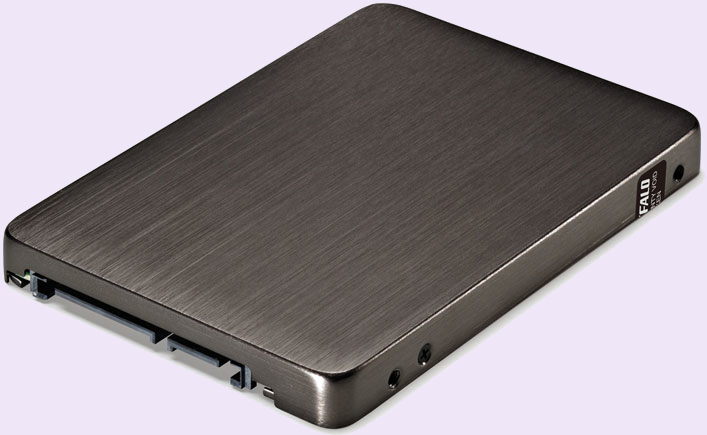Buffalo Technology, well known for their networking and storage solutions, has apparently released their very first internal SSD.
Dubbed the SSD-NS/PM3P, the drive will be available in capacities of 128, 256 and 512GB, each of which will offer read speeds of 500MB/s, 513MB/s and 479MB/s respectively, according to Crystal Disk Mark.
The drives will initially be available in Japan, with prices starting at around $300.
An interesting aspect about this news is that the SSD-NS/PM3P is going to be manufactured by Philips and Lite-On Digital Solutions (PLDS), and as such, bears a striking resemblance to Lite-On’s oem M3S SSD. Of course, there’s nothing wrong with using a reference design, especially when you consider that the vast majority of the SSD industry actually adopts this approach. What’s intriguing about the drive is that, considering it’s origins, it’s necessarily based on a Marvell controller.
Indeed, if the product is released in the US, Buffalo will be among a group of only several companies with a Marvell based SSD design, which is known for its high reliability and competitive performance. Such a product decision will no doubt serve to beguile many a potential buyer, that is, if the price is right.
It’s true, that with the release of their new 520 SSD (if one uses reliability and performance as metrics), Intel pretty much has the market cornered. As such, any company intending to release a new SSD from this point on will likely have to be very aggressive when it comes to pricing (longer warranties wouldn’t hurt either), even if it is built on a highly reliable foundation.
The harsh reality is, now that Intel’s prodigal son has begun to proliferate the marketplace, this industry has been irrevocably changed; in my view, for the better. Seeing as we have a veritable 800 pound gorilla with virtually unlimited resources throwing its weight around, every other manufacturer is now going to have to work that much harder in order to get their product noticed. Competing directly with this predominant primate will most certainly be an exercise in futility at this point, with the only hope for success being added incentives that allow the disparate firms to evade the giant’s all-encompassing reach.
If manufacturers can successfully step out of this massive shadow, they may have a chance of coming across an oasis in what is, for the most part, hostile territory. In contrast to SSD companies feelings on the matter, consumers should be ecstatic, as they’ll be the ones to gain the fruits of what really has become a forest of an industry, with survival of the fittest now coming into play more than ever. With any luck, companies will be able to adapt to their new surroundings and end up on potential buyers short list of choices. Otherwise, they may find themselves on a list of an entirely different sort, at least when it comes to the SSD market.
It’s a jungle out there!
 The SSD Review The Worlds Dedicated SSD Education and Review Resource |
The SSD Review The Worlds Dedicated SSD Education and Review Resource | 

A jungle indeed. The Intel 520 SandForce-based SSD is bringing prices down already, starting with its very own new lineup. You can get the 180GB version for less than $300 now (from several retailers) and the 240GB version I’ve seen for less than $350 (no typo!). That’s LESS than $1 per GB more for the 240GB Intel SATA III 520 Series, which is considerably less than OWC, OCZ, etc.
The 180GB Intel 520 that resides in my MacBook Pro is running fabulously, and, no real surprise here, noticeably faster than my previous OWC Mercury Extreme Pro 6G SSD, albeit only the 120GB version. I’m going to switch into a 240GB version after I try running two 180GB in RAID 0 mode in said MacBook Pro. (late-2011 model)
Across the board, the Intel 520 SSDs are LESS expensive than many of its competitors. The price war has indeed begun.
“240GB version I’ve seen for less than $350 (no typo!). That’s LESS than $1 per GB” Your maths teacher would be so proud!
Intel better not blink…there’s a new kid on the block named SanDisk Extreme and it’s sporting premium SanDisk 24nm toggle nand and customized firmware. Prepare to watch it claim #1 on on the Vantage HDD chart.